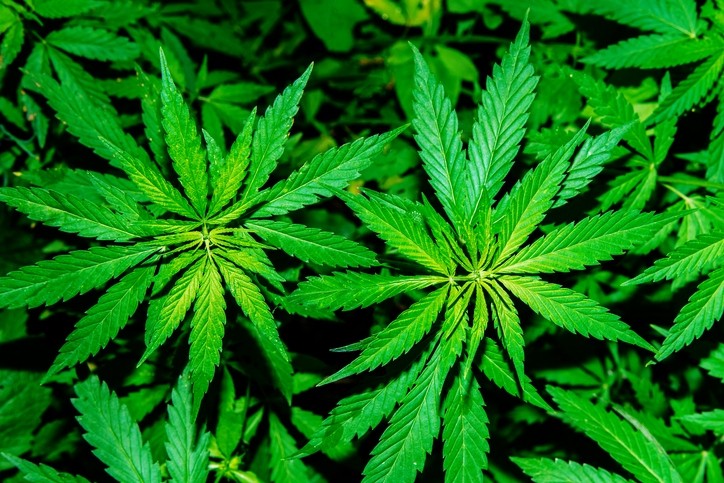From the editor's desk
Girl who inspired CBD movement has passed, but passion driving it has not

It was announced this week that 13-year-old Charlotte Figi of Colorado Springs, CO has died from what her family believes to COVID-19 complications. She was diagnosed with Dravet’s Syndrome as a child, which is a form of epilepsy that it hard to treat with conventional therapies. Charlotte’s family had success using CBD oil, which they said helped control her seizures and gave her a life similar to that of other children. She gave her name to one of the leading companies in the sector—Charlotte’s Web.
The pain of a parent with a challenged child
Eight years or so ago with a previous employer I worked at an office in Boulder, CO, which is one of the hotbeds of the medical marijuana and hemp products movement. I met families there who had moved to Colorado (one of the early adopters in the cannabis game) at that time specifically to have access to Charlotte Web’s products and other CBD products for their children who had problems similar to that of Charlotte’s.
These parents were adamant that CBD was saving their children’s lives. These were children who were suffering sometimes dozens of seizures a day and were dying by degrees right in front of their parents’ eyes. CBD didn’t cure these children, but in the view of these families it quelled their seizures well enough to let them to have some semblance of a normal existence.
I don’t doubt the veracity of these anecdotal reports. As the one-time parent of a special needs child myself I know how laser focused you can become on your child’s condition and the effect (or lack thereof) of the things you try to do to help.
CBD and civil disobedience
And I don’t doubt the passion and integrity with which advocates like these hold their views. It’s part of the reason why the CBD sector has borne witness to what has been essentially a massive civil disobedience action, albeit one played out behind the scenes without water cannons, police dogs and public arrests and imprisonments.
What these advocates were essentially saying was this: I don’t care how you, Mr Federal Government, have decided dietary supplement products ought to be regulated. I know this stuff works and I need it for my child’s condition, my chronic pain, my traumatic brain injuries, my anxiety, etc., and I’ll go over, around or through you to get it if I have to.
These sorts of advocates have in particular no patience for explanations of things like the exclusionary clause. It makes no sense to them that they can’t have fully legal access to dietary supplements based on CBD because of the date stamped on some drug form from years ago.
Toothpaste won’t go back into tube
The US Food and Drug Administration seems to have finally come around to the conclusion that all of these technically illegal products on the market reflect the will of the people. The issue now is what the process will be to determine the correct place of CBD/hemp supplements within the regulatory structure and how long that process might take.
Advocates of kratom are in a similar position. They believe passionately in the health benefits of the botanical, but it is one for which there is at the moment no convenient regulatory home. Kava might be another example.
We here at NutraIngredients-USA have a mission to advocate for best practices within the industry, whether that concerns the scientific backing for claimed health benefits, manufacturing quality or regulatory compliance. That puts me in a position from time to time of acting as a gate keeper. I do occasionally get approached to do stories that don’t smell right, whether it’s someone making outlandish claims, using dodgy ingredients or what have you.
This is part of what was our initial reluctance to engage heavily with the CBD sector. If we’re out there advocating for best practices, how does it look if we’re at the same time helping to publicize products that FDA repeatedly said were illegal? To be honest, the whole argument about ‘full spectrum’ hemp extracts didn’t smell right to me at first. The marketers of these were all aglow about a purported entourage effect, when to my mind what they were really seeking was regulatory relief. Hey, FDA! Look, I’m hemp, not CBD!
Lack of herbal medicine category is a consistent tension
It also points to a basic structural tension within the regulation of supplements. The US has no herbal medicine category like those that exist in Europe, and an attempt to create one as part of the negotiations around the crafting of DSHEA in the early 90s went nowhere. As a result, botanical ingredients were shoehorned in with things like protein powders and multivitamins to be regulated as dietary supplements, a subset of the broader category of food.
Trouble is, many of these substances have never been used as foods and the people who have researched them, advocated for them and used them in their herbal practices have never claimed they were. These were traditional herbal medicines, and their effects were seen as being medicinal as opposed to being merely supportive of a generally healthy diet.
DSHEA, while now showing its age, gave birth to a thriving, innovative industry. It is one that is now large enough to have a chance of meeting the exploding demand for certain supplements during the current coronavirus crisis. But it’s not a perfect law, and the difficulty of dealing with substances at the edge of supplement space points to one of its most problematic aspects. Whether this issue will be an agenda item once the ‘DSHEA 2.0’ discussions get restarted remains to be seen.
















